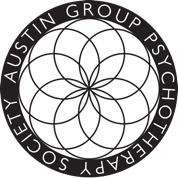|
About Group Therapy
Group psychotherapy is a special form of therapy in which a small number of people, usually 5-10, meet together under the guidance of a professionally trained therapist. In a typical session, which lasts about 75-90 minutes, members work to express their own problems, feelings, ideas and reactions as freely and honestly as possible. Such exploration is useful because it provides opportunities to learn with and from other people, to understand one’s own patterns of thought and behavior and those of others, and to perceive how group members react to one another. Members learn not only to understand their own issues but also to become “therapeutic helpers” for other members.
We live and interact with people every day, and often there are things that we are experiencing or grappling with that can be beneficial to share with others. In group therapy, you learn that perhaps you’re not as different as you think or that you’re not alone. You’ll meet and interact with people, and the whole group learns to work on shared problems — one of the most beneficial aspects. The more you involve yourself in the group, the more you get out of it.
It’s not unusual to feel uneasy or embarrassed when first joining a group, but soon you begin to develop feelings of interest and trust. Most clients find that group therapy provides a great deal of relief because it allows them a chance to talk with others who are experiencing similar problems — in a private, confidential setting. Many people who have experienced group therapy believe that working together with others is helpful and they feel better by participating in this form of therapy.
For over 50 years, various types of group therapy have been widely used and group therapy has been a standard treatment option. In studies comparing group psychotherapy to individual therapy, group therapy has been shown to be as effective and sometimes even more effective.
Group psychotherapists are mental health professionals trained in one of several areas: psychiatry, psychology, social work, professional counseling, psychiatric nursing, marriage and family therapy, pastoral counseling, creative arts therapy or substance abuse counseling.
 Austin Group Psychotherapy Society
Austin Group Psychotherapy Society